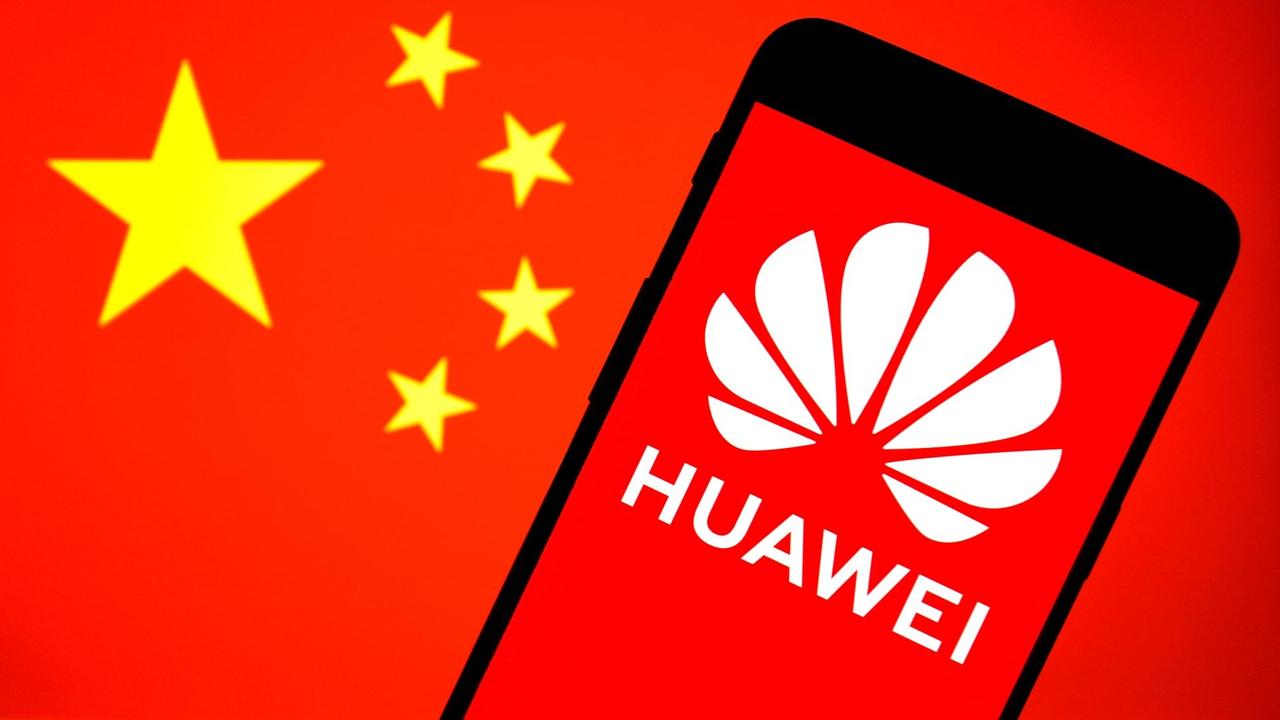China Bans TechInsights After Revealing Foreign Components in Huawei's AI Chips
2 Sources
2 Sources
[1]
China blacklists major chip research firm TechInsights following report on Huawei
Beijing has banned semiconductor research firm TechInsights from working with or receiving data from Chinese entities, in a move that could add to the opaqueness of the country's chip industry. China's Commerce Ministry, citing national security concerns, announced Thursday that TechInsights was designated an "unreliable entity," which prohibits Chinese individuals or organizations from sharing information with the Canadian-based company. TechInsights is well known in the global tech space for its in-depth coverage of Chinese-made chips and was among the first to report breakthroughs by companies like Huawei Technologies. Beijing's crackdown on TechInsights came less than a week after the firm revealed that a breakdown of Huawei's latest artificial intelligence chips found components sourced from outside mainland China. TechInsights didn't immediately respond to a request for comment from CNBC, while Huawei didn't respond to an inquiry about TechInsights' report. The findings by TechInsights about Huawei's latest "Ascend" AI chips were consistent with those from other research firms like SemiAnalysis, which said that the Chinese company relies on technology from memory chipmakers like Samsung Electronics and contract chipmaker Taiwan Semiconductor Manufacturing Co (TSMC). These companies are under U.S. export controls, restricting them from selling their most advanced technologies to Chinese customers. Moreover, Huawei has been on a U.S. trade blacklist since 2019, barring chip makers that do business with the U.S. from working directly with it. In response, Beijing and its chipmakers have stepped up efforts to build a self-sufficient semiconductor supply chain. Huawei, one of China's leading players in these efforts, has been developing alternatives to U.S. chip giant, Nvidia, though TechInsights' latest findings may be seen by some as a knock on such efforts. Despite its prominence in China's chip space, few details are disclosed about Huawei's chipmaking efforts outside of what third-party research firms uncover. For example, reports have said that Huawei works closely with China's leading chip foundry SMIC -- a competitor of TSMC -- though both companies have been silent about any collaboration since Huawei was placed on the U.S. trade blacklist. Last year, TechInsights reportedly found that a Huawei product contained a chip component from TSMC, triggering questions about the effectiveness of U.S. export controls. The research firm's latest findings on Huawei's AI chip could further fuel such concerns. Analysts say Chinese chip companies have exploited loopholes in U.S. restrictions and drawn on stockpiles of imported chips and components before certain restrictions kicked in.
[2]
What did TechInsights find in Huawei's chips to get banned by China?
The controversial report from TechInsights found that Huawei's new "Ascend" AI processors contained crucial components sourced from outside mainland China. China's Commerce Ministry has designated Canadian research firm TechInsights an "unreliable entity," banning Chinese organizations from sharing information with it. The ministry cited national security, acting after a TechInsights report revealed foreign components were present in Huawei's latest artificial intelligence chips. The designation, announced Thursday, formally prohibits Chinese individuals and organizations from working with or providing data to the company. TechInsights is known in the global technology sector for its in-depth analysis of Chinese-made semiconductors and was among the first firms to report on breakthroughs by companies such as Huawei Technologies. This action could increase the opaqueness surrounding China's domestic chip industry. Beijing's crackdown occurred less than a week after TechInsights published its findings on Huawei's new "Ascend" AI chips. A technical breakdown of the processors found that they contained components sourced from outside mainland China. Neither TechInsights nor Huawei immediately responded to separate requests for comment regarding the blacklisting and the report's contents, respectively. The conclusions from TechInsights were consistent with independent findings from other semiconductor research firms. The firm SemiAnalysis, for instance, had previously noted that Huawei relies on technology from established memory chipmakers like South Korea's Samsung Electronics and the contract chip manufacturer Taiwan Semiconductor Manufacturing Co. (TSMC) for its devices. Both Samsung and TSMC operate under United States export controls, which restrict them from selling their most advanced technologies to customers based in China. Furthermore, Huawei has been on a U.S. trade blacklist since 2019. This listing specifically bars chip manufacturers that conduct business with the U.S. from engaging in direct work with the Chinese technology company. In response to these ongoing U.S. restrictions, Beijing and its domestic chipmakers have intensified efforts to construct a self-sufficient semiconductor supply chain. Huawei is a prominent participant in this national initiative, actively developing alternatives to chips produced by U.S. industry leader Nvidia. Few specifics about Huawei's chip-making activities are publicly disclosed outside of what third-party research firms uncover. Reports have suggested Huawei works closely with China's leading chip foundry, SMIC, a competitor of TSMC, though both companies have been silent about any collaboration since Huawei was placed on the U.S. blacklist. Last year, a separate TechInsights report found a TSMC component in another Huawei product, which raised questions about the effectiveness of U.S. export controls. Analysts who follow the industry state that Chinese chip companies have navigated the U.S. restrictions by exploiting existing loopholes in the regulations. These companies have also utilized stockpiles of imported chips and components that were procured before the implementation of certain restrictive measures.
Share
Share
Copy Link
China has blacklisted Canadian semiconductor research firm TechInsights following a report that exposed the use of foreign components in Huawei's latest AI chips. This move highlights the ongoing tensions in the global chip industry and China's push for technological self-sufficiency.
China's Retaliation Against TechInsights
In a move that has sent ripples through the global semiconductor industry, China's Commerce Ministry has designated Canadian research firm TechInsights as an "unreliable entity." This decision, announced on Thursday, effectively bans Chinese individuals and organizations from sharing information or working with the company
1
2
.
Source: CNBC
The Controversial Report
The blacklisting comes less than a week after TechInsights published a report revealing that Huawei's latest "Ascend" artificial intelligence chips contained crucial components sourced from outside mainland China. This finding has raised questions about the effectiveness of U.S. export controls and China's progress towards semiconductor self-sufficiency
2
.Implications for China's Chip Industry
TechInsights' report aligns with findings from other research firms like SemiAnalysis, which noted Huawei's reliance on technology from memory chipmakers such as Samsung Electronics and Taiwan Semiconductor Manufacturing Co (TSMC). These companies are subject to U.S. export controls, restricting their ability to sell advanced technologies to Chinese customers
1
.U.S. Export Controls and Huawei
Huawei has been on a U.S. trade blacklist since 2019, barring chip makers with U.S. business ties from working directly with the Chinese tech giant. In response, Beijing and its chipmakers have intensified efforts to build a self-sufficient semiconductor supply chain, with Huawei playing a leading role in developing alternatives to U.S. chip giant Nvidia
1
2
.Related Stories
Industry Opacity and Loopholes
The ban on TechInsights is likely to increase the opacity surrounding China's domestic chip industry. Few details about Huawei's chipmaking efforts are publicly disclosed outside of what third-party research firms uncover. Reports suggest that Huawei works closely with China's leading chip foundry SMIC, though both companies have remained silent about any collaboration since Huawei's blacklisting
1
.Challenges to U.S. Restrictions
Analysts note that Chinese chip companies have exploited loopholes in U.S. restrictions and drawn on stockpiles of imported chips and components acquired before certain restrictions took effect. TechInsights' findings on Huawei's AI chips could further fuel concerns about the effectiveness of U.S. export controls
1
2
.References
Summarized by
Navi
Related Stories
US Tightens Chip Export Controls to China, Blacklists Chinese AI Firms
14 Jan 2025•Business and Economy

TSMC Halts Chip Shipments After Discovering Potential Sanctions Breach with Huawei
19 Oct 2024•Policy and Regulation

TSMC Suspends Shipments to Chinese Firm After Chip Found in Huawei AI Processor
27 Oct 2024•Policy and Regulation

Recent Highlights
1
OpenAI secures $110 billion funding round from Amazon, Nvidia, and SoftBank at $730B valuation
Business and Economy

2
Anthropic stands firm against Pentagon's demand for unrestricted military AI access
Policy and Regulation

3
Pentagon Clashes With AI Firms Over Autonomous Weapons and Mass Surveillance Red Lines
Policy and Regulation





